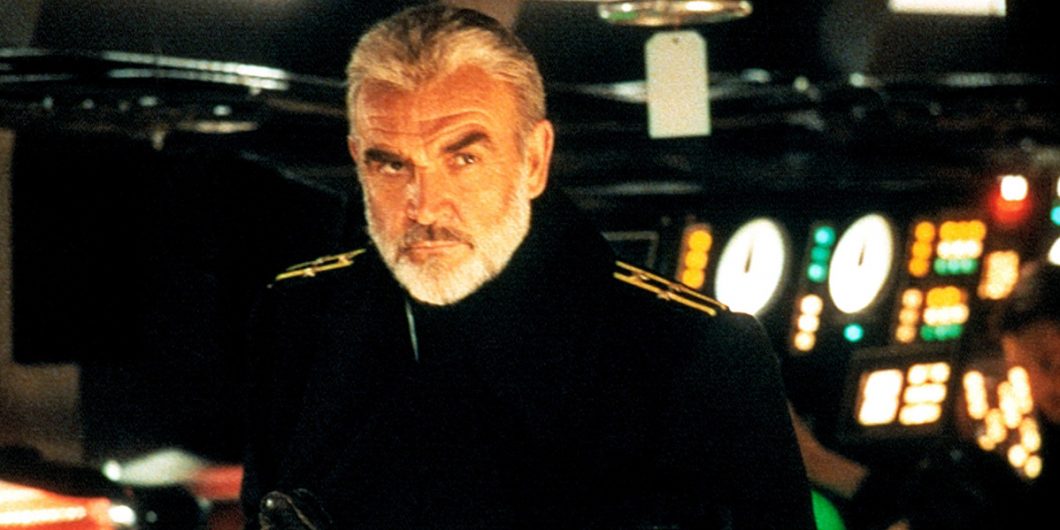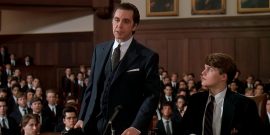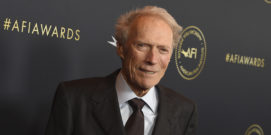Scent of a Woman presents the moral and manly education of Charlie Simms, who has been left fatherless by America.
The Part of Wisdom
Sir Sean Connery has died at the age of 90, one of the few men who left Hollywood better than he found it because he portrayed courage, strength, and prudence. He was James Bond, which may be the only widely shared ideal for men in two generations. It’s certainly still a role actors struggle to play, because it retains a rare hold on the imagination of young men seeking luxury, splendor, heroism, patriotism—in a word, aristocracy.
Since he was an actor, the best way to mourn him is to celebrate his work, and so I recommend to you the movies that show him in the most admirable light, especially those made toward the end of his career, when he became Hollywood’s only example of a wise old man in what were then typically manly jobs—police, the navy, business, and diplomacy.
Thumos and Kingship
First, however, let us contemplate him in the fullness of his strength as practitioner of the royal art in the times of the British Raj, at the end of the 19th century. In 1975’s The Man Who Would Be King, Connery and his friend Michael Caine were directed by the great John Huston, himself a manly man, in an adaptation of the short story by Rudyard Kipling.
Connery and Caine, two former British soldiers, get it into their heads to go beyond civilization, into Afghanistan. There they create a kingdom of their own, imitating what the British Empire had been doing in India. With superhuman determination and a half-dozen rifles, they just about succeed. Indeed, Connery is worshiped as a pagan god as he assumes kingship.
The wonder of the movie is the confrontation of modern and ancient politics, of technology and piety, and the tragic limits of ruling in both cases. Connery’s performance gives life to a low-class former soldier, a scoundrel, and a freemason whom the British legal order contemplates with embarrassment and indignation. He emerges a proud cavalryman and then rises to become judge and king.
The military virtues connect the age of democracy with the age of aristocracy, since wars are still fought, but they also conceal the great ambitions nursed in the heart of man. In the age of empires, it was still possible to dream of establishing a new kingdom. Indeed, now and then someone actually did make himself into a ruler and assume the full powers of that freedom that puts a man above the laws.
He becomes a king, but his people demand he become a god in the process, which is both more and less than a man. He is obeyed in religious fear, but must live and die alone, without the joys and comforts of friendship and love. The desire to become a god then leads to tragedy—indeed, one would have to be nearly a god to contemplate such loneliness.
The Chicago Way
In 1987, Brian De Palma directed and David Mamet wrote The Untouchables, the only famous story we have about Al Capone, with a cast that included Robert De Niro as the gangster and a young Kevin Costner as the proud, moral Elliott Ness, the cop who brought him down. Yet it was Connery who shone as the Irish Catholic beat cop who has to teach Ness how to fight “the Chicago way.”
This is a story of American democracy brought to a high pitch by the intense moral demands of Prohibition. It presents a city threatened by the aristocratic splendor and tyrannical desires of the old world, personified by Capone, a darling of the media who bashes people’s heads in with baseball bats. After all, romantic delusions about violent criminals are also a national pastime. Law seems meager compared to luxury and also weak, compared to intrigue, corruption, and bribes.
Connery here embodies the virtues of a younger, more robust democracy. A poor man, he rose as a policeman into the dignity of citizenship and the middle class. He borrows a certain taste from the aristocracy—the dress of the gentleman, the leisure of home, and the sure judgment of character—while retaining the advantages of democracy, a sure knowledge of the ugly facts of life, and a willingness to get his hands dirty and do dangerous things.
An Honorable Defector
Connery’s next iconic turn was as Marko Ramius, a submarine captain and legendary man of war, in John McTiernan’s 1990 adaptation of Tom Clancy’s debut novel The Hunt for Red October. Instead of the technical jargon of the novel, McTiernan’s movie gives us a Cold War confrontation between America and the Soviets, freedom and tyranny, and therefore a study of different men.
Alec Baldwin plays intrepid CIA agent Jack Ryan, the exemplar of barely-tamed American thumos. Ryan embodies professionalism and the virtues of the middle-class family, yet also possesses a searching ambition and a nose for greatness, which is why he becomes fascinated by Ramius, who is his superior in all respects except one—the latter serves a master he loathes and begins to fear, a Soviet Union that attaches political officers to military units to keep a leash on the men of honor.
Wisdom is a title to rule, which is why we want competent craftsmen and experts whenever we have a job to do. Connery’s remarkable career ended with a number of roles where he acted the part of wisdom in human affairs.
We may call this a fairy tale, since Soviet power in the 80s included neither technological innovation nor great-souled men. This is no accident—it’s a poetic improvement on history, revealing the necessary complement to virtues and experience Americans already have. Connery plays the perfect gentleman, a moral and intellectual authority, who as such masters the art of the general, not only more peaceful arts. This is obviously an image more fitting the Old rather than the New World.
Technological Aristocracy
I’ll conclude with one more of Connery’s forays as an exotic, mysterious, wise man. In 1993, he starred in Philip Kaufman’s adaptation of Rising Sun, Michael Crichton’s novel about Japanese industrial intrigue and American political corruption, alongside Wesley Snipes and Harvey Keitel. This movie is unparalleled as a comparison of American and Japanese mores, and we could use such a presentation of Sino-American relations today, if it were even conceivable that studios would undertake such a dangerous venture.
In typical Crichton fashion, a timely public concern—Japanese attempts to buy strategic technology corporations—is mixed with the ugly underworld of drugs, prostitution, and murder. An L.A. detective (Snipes) has to deal with this when a prostitute is murdered in a Japanese skyscraper during a gala where all the important American politicians in California are feted. Given the money and prestige involved, anything he does is likely to cause a scandal.
Connery, in a performance that recalls Kurosawa’s great actor, Toshiro Mifune, as he in turn recalled John Ford’s great actor, John Wayne, ties all this together. Connery partners with Snipes, since he used to be in law enforcement, but he also consults for Japanese corporations, so his loyalties and past are both suspect. Nevertheless, he’s the man who can solve the case and reveal the ugly truth because he understands the combination of ancient aristocracy and modern technology Japan typified—at least before the rise of China.
Wisdom is a title to rule, which is why we want competent craftsmen and experts whenever we have a job to do. Connery’s remarkable career ended with a number of roles where he acted the part of wisdom in human affairs. His characters exhibited a knowledge of mores and souls that escapes the rules of expertise and the methods of science, but which governs our politics, and is universal rather than specialized. He deserves our admiration and that glimpse of human nature deserves our attention.



